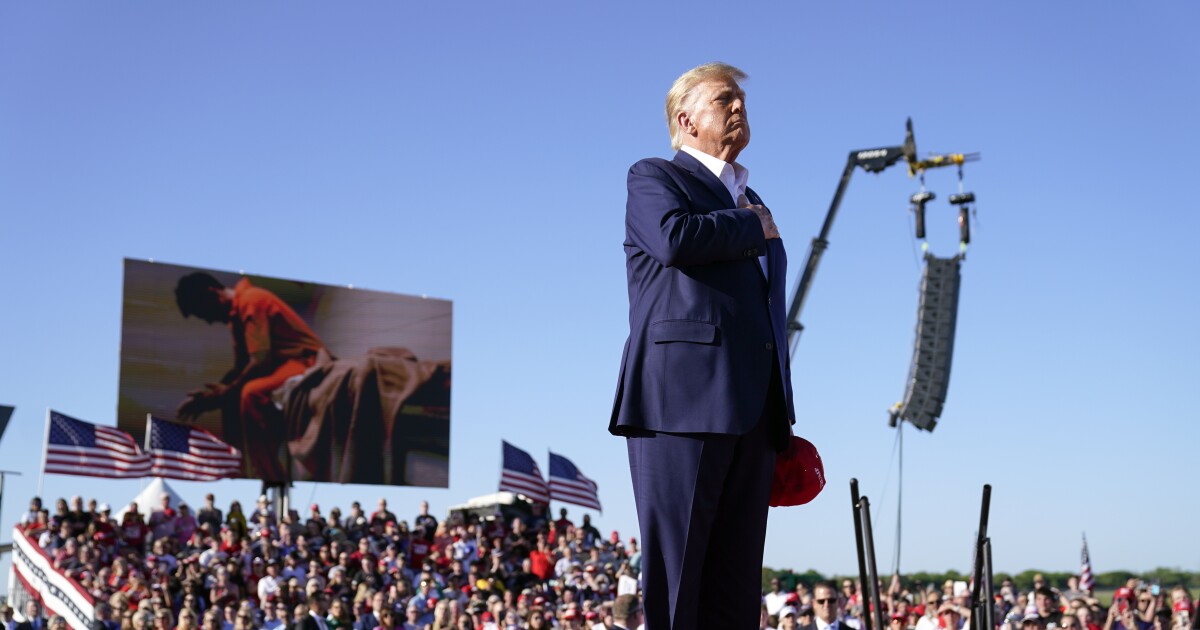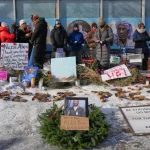

Former President Donald Trump is set to appear in Manhattan court on Tuesday for his arraignment in a hush-money case — and all eyes are on his legal team to see what strategies they employ to reject the charges over the next few months.
Many expect Trump’s attorneys to use a familiar strategy of delaying any court proceedings in an effort to outwait the former president’s opponents. In doing so, the case could be pushed far into the 2024 presidential campaign when Trump is expected to be the top contender for the GOP nomination.
TRUMP INDICTED: REPUBLICANS AND DEMOCRATS ALIKE CASH IN ON INDICTMENT NEWS
Here’s a breakdown of the different strategies Trump may use as he navigates the legal waters while plotting a return to the White House.
Delay, delay, delay
Among the list of likely strategies being mulled by Trump, delaying court proceedings and possible charges is at the top.
For decades, Trump has used this method of dragging out legal fights as long as he can in an effort to outlast the patience of his opponents. The strategy has seen mixed results, and the criminal indictment he now faces presents him with different challenges.
However, he still has a list of options to choose from in order to delay his case: file motions of appeal, attempt to dismiss the case entirely, request to relocate the trial outside of New York City, seek to move the case from state to federal court or seek to reduce charges from being considered felonies to misdemeanors, among other things.
“If they’re doing their job, they’re going to do everything they can to delay, delay, delay, delay,” Catherine Christian, a 30-year veteran of the Manhattan district attorney’s office, told Politico. “Every single motion they can think of. That’s what they’re going to file.”
Disqualify key actors on grand jury
Trump is also likely to try and undermine confidence in the grand jury itself, with the former president’s lawyers hinting that they may push the judge to investigate the group’s proceedings in the case. Ultimately, Trump’s legal team wants to find a way to show the charges lack probable cause or that the decision was politically motivated.
“You’d … make a motion to ask for the court to review the grand jury minutes and determine whether or not the D.A. presented legally sufficient evidence,” Michael Scotto, a former chief of the Rackets Bureau, told the outlet. “It’s not the lockbox it is in the federal system.”
Argue delay in case violates constitutional rights
Trump can also use the timeline of the case to argue that holding a trial based on allegations from 2016 would violate his due process rights granted under the New York constitution.
The criminal charges Trump faces stem from a case that emerged during his first White House run in 2016 after he was accused of making payments to porn star Stormy Daniels to keep quiet about a sexual affair. Trump’s attorney Michael Cohen was convicted in 2018 after pleading guilty to paying two of the women involved, testifying that he paid Daniels $130,000 and was later reimbursed by the Trump Organization.
Manhattan prosecutors later opened an investigation into whether Trump falsified business records to list the reimbursement as a legal expense. The case was later dropped due to guidance from the Justice Department that a sitting president cannot be charged with a crime.
However, prosecutors revived discussions about possible charges shortly before Trump left office in 2021 — prompting the former president and his allies to accuse Manhattan District Attorney Alvin Bragg of reviving the case to tarnish his 2024 campaign.
Trump won’t take plea deal
Although Trump’s defense strategy is not yet set in stone, one thing has been made clear: He won’t take a plea deal in the case.
CLICK HERE TO READ MORE FROM THE WASHINGTON EXAMINER
“It’s not going to happen,” Trump attorney Joe Tacopina told NBC News on Friday. “There’s no crime.”
Instead, Trump will “voluntarily” hand himself over to prosecutors for his scheduled arraignment and cooperate with court officials.





